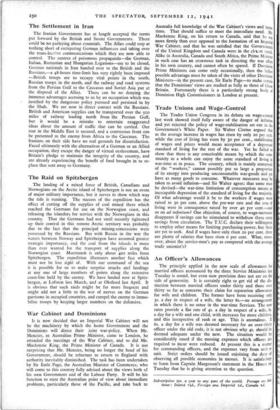The Raid on Spitzbergen
The landing of a mixed force of British, Canadians and Norwegians on the Arctic island of Spitzbergen is not an event of major military importance, but it serves to show which way the tide is running. The success of the expedition has the effect of cutting off the supplies of coal mined there which reached the Germans for use on the Norwegian coast, and releasing the islanders for service with the Norwegians in this country. That the Germans had not until recently tightened up their control in this remote Arctic territory was probably due to the fact that the principal mining-concessions were possessed by the Russians. But with Russia in the war the waters between Norway and Spitzbergen have assumed greater strategic importance, and the coal from the islands is more than ever wanted for the transport of supplies along the Norwegian coast. Murmansk is only about 400 miles from Spitzbergen. The expedition illustrates another fact which must not be lost sight of. With our command of the sea it is possible for us to make surprise attacks and landings at any one of large numbers of points along the extensive coast-line held by the enemy. We have landed now at Spitz- bergen, at Lofoten last March, and at Oksfiord last April. It is obvious that such raids might be far more frequent and might add not a little to the war of nerves on the German garrisons in occupied countries, and compel the enemy to immo- bilise troops by keeping larger numbers on the defensive.


























 Previous page
Previous page